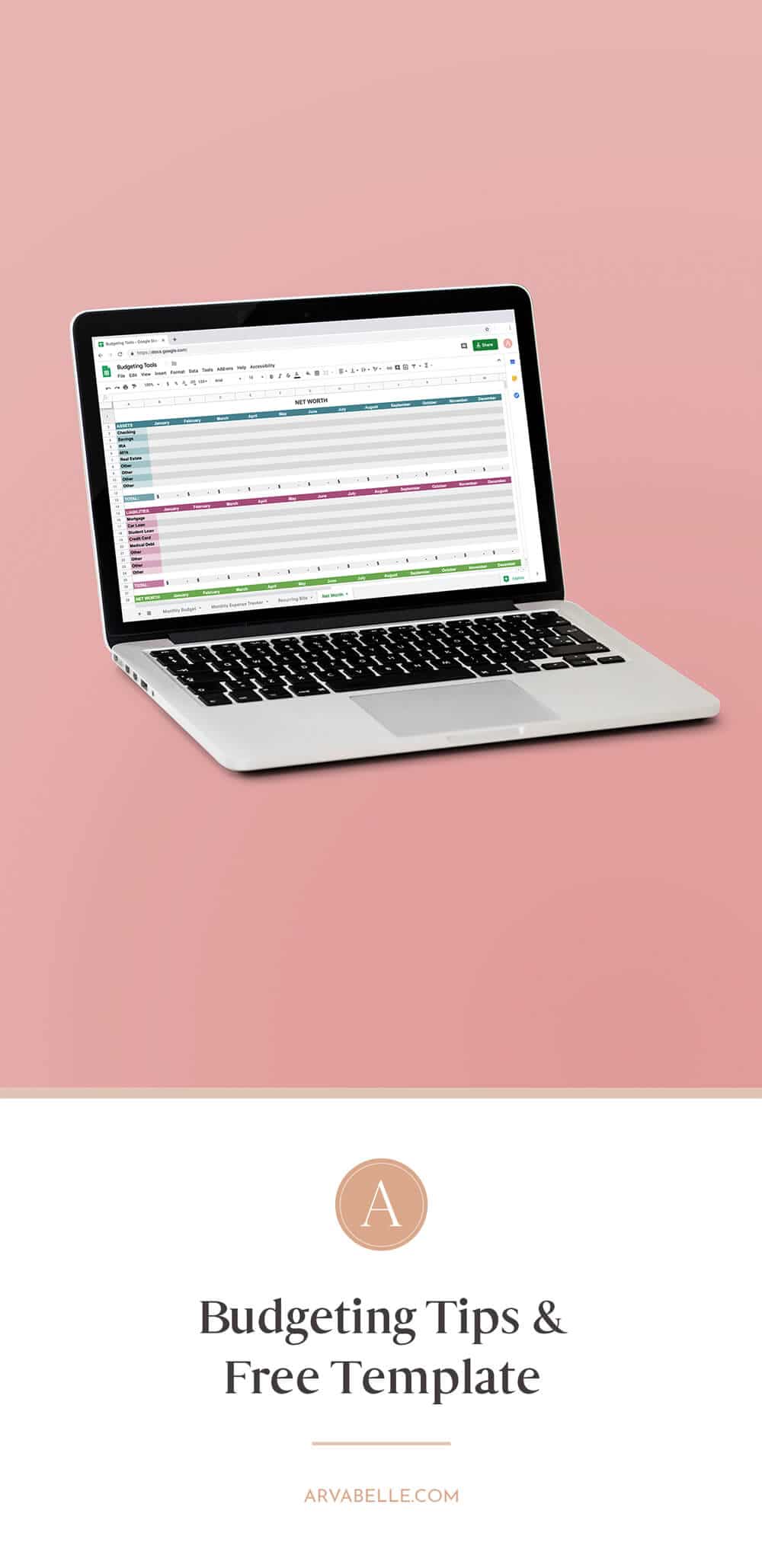
In this video, learn how to easily create a budget and stick to it! Tracking your expenses doesn’t have to be hard. Follow these easy budgeting tips!
Why Should You Have a Budget?
Creating a budget is an important step to reaching your financial goals. It allows you to see where you’re spending money, and where you can cut back. By sticking to a budget, you can start working toward saving, traveling, investing, paying off debt, or whatever your goals are.
Use the link below to get your free budgeting template. Once you sign up a Google Sheets link will be sent to your inbox! If you’d like to see what the template looks like, watch the video above!
SEND ME MY FREE BUDGETING TEMPLATE!
Now that you have your budgeting template, let’s go over some things that you can do to make your budget more effective. You want to create your budget in a way that you’ll be more likely to stick to.
Set a Goal
Before anything else, you need to set a goal of some sort, or you won’t stick to your budget.
It can be a responsible goal like paying off your debt or investing a certain amount every month. Or it can be a fun goal – like a vacation. Whatever it is, have a reason for budgeting.
Let’s Talk About Your Income
Base your budget around what you make after taxes.
For all of my fellow self employed people, that means setting aside 15%-30% of your income (depending on your state’s tax rate).
Budgeting Tip: Try budgeting your money based on when you’re getting paid. If a month-to-month budget works for you, great. But if you are paid weekly, or bi-weekly, you might want to try creating your budget based around that.
Or, let’s say you are paid monthly, but you don’t get your paycheck until the middle of the month. If you get paid on the 15th of every month, it might make more sense to budget from November 15th to December 15th, instead of trying to budget November 1st to December 1st.
If you have a variable income, that means the amount of money you have coming in every months changes.
If that applies to you, you want to take your last 6 months-12 months of your income, and base your budget around the lowest income month that you had.
If anything you do is even remotely seasonal or affected by holidays, that can throw your monthly income totally out of whack. You don’t want to be unprepared in a situation where your income could decrease for a few months. For that reason, it’s best to use your lowest income month for your budget.
What Are Your Spending Habits?
Now you need to figure out how much you are currently spending, and what your needs actually are. You need to be tracking all of your expenses.
Go through your bank and credit card statements for the last 3-4 months and record every transaction. You can do that using our free budgeting template (or on a piece of paper).
It’s a tedious process, but the results can be shocking. Often times, what we think we spend vs what we are actually spending can be quite different.
Categorize Your Expenses
Next you want to go through and categorize your expenses so that you can really figure out your fixed costs. What do you need to survive, and where can you cut back? If this is your first time budgeting, you’re going to quickly start noticing areas where you probably don’t need to be spending as much.
Ideally, you want know off the top of your head, how much money is coming in every month, and how much money is going out.
Be Realistic
You need to be realistic with how much you’re cutting back. Going slow and steady is always better, I think, than cutting back so drastically that you end up not following your budget because it wasn’t sustainable.
If you do need to cut back in a drastic way to be able to make a payment or pay off debt, go for it. Just start developing a more long term, sustainable budgeting plan. You don’t want to be stuck in the cycle of overspending one month, cutting back the next, overspending again the next month, and cutting back the next.
SEND ME MY FREE BUDGETING TEMPLATE!
Budget for Debt, Savings, & Investments
You need to pay yourself first, and budgeting for debt, savings, and investments.As long as you’ve got a roof over your head and food on the table, invest first and spend second.
If you have a hard time getting yourself to set aside that money for debt payments or for investing, set up automatic transfers. That way you don’t really even see the money. (Out of sight out of mind!) Whatever you have left after those automatic withdrawals is what you have to work for budgeting everyday expenses.T
Track Your Net WorthA
Tracking your net worth is a great way to visually see your financial progress (or lack thereof). I think this is especially great to do if you are paying off debt or if you’re working on building your investments.
To calculate your net worth, take all of your assets and subtract all of your liabilities. (The money you have – minus the money you owe.)
Take It Slow
You might not make progress as quickly as you’d like to. And that’s okay! Learning how to manage your money can be a slow process. But remember – consistency is key!

